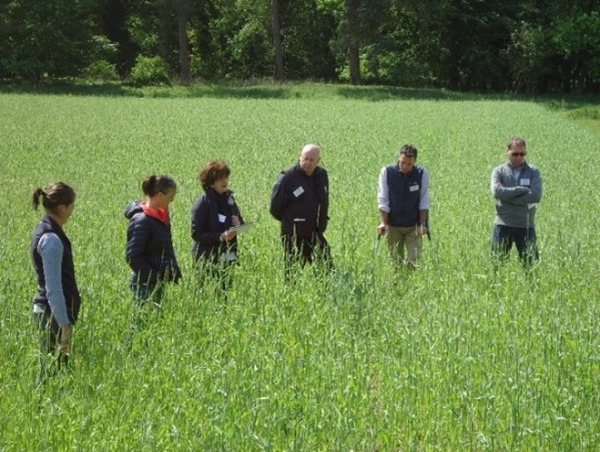In February, researchers from Newcastle University, led by Dr Niki Rust, published results from a SolACE content analysis of the UK farming media. The article entitled Framing of sustainable agricultural practices by the farming press and its effect on adoption concludes that the prevalence of sustainable practices has increased in these publications. Sustainable practices are primarily framed positively, which can increase awareness of sustainable innovations, even if farmers are not motivated to take up new practices exclusively by reading the farming press.
The research included a content analysis of the two main agricultural publications in the UK: Farmers Weekly and Farmers Guardian. All articles available online from January 1998 to February 2020 were systematically searched for six sustainable arable practices/products identified by the SolACE project: 1. Precision agriculture, 2. Reduced/no-till, 3. Improved crop breeding, 4. Fertiliser technologies, 5. Grain legumes in rotation and 6. Microbial inoculants/biostimulants. Beyond recording the total number of articles on each topic, random sampling of 50 articles from each of the six topics (300 articles total) were analysed to look at how sustainable practices were framed and the tones (positive or negative). Additionally, 32 farmers and 28 agricultural advisors were interviewed throughout 2019 about their views of the farming press and their motivations for adopting new sustainable farming practices.
The content analysis revealed that overall, the quantity of articles about sustainable agricultural practices has increased since 2009, while the total number of articles has decreased since 2014. Additionally, the UK farming press largely frames these practices positively, though notably these framings are centred on agronomic and economic aspects (e.g. yield and productivity), with little emphasis on environmental benefits. A similar mentality was apparent in farmer interview respondents, who indicated that they primarily adopted new sustainable practices due to economic reasons, followed by agronomic reasons, with very few respondents mentioning environmental benefits.
The farmer and advisor interviews showed that the UK farming press is viewed as an important source of information, primarily through raising awareness of particular topics. However, they also highlighted the scepticism associated with farming publications producing articles to promote a product or technology on behalf of agribusiness. Farmers would be unlikely to adopt a sustainable practice solely from reading about them in the farming press and typically seek out additional verification from other farmers and/or agricultural advisors in deciding to try a new practice or product.
For additional information about this work, please contact Dr Niki Rust, who is now the Tees-Swale Programme Manager with the North Pennines Area of Outstanding Natural Beauty.

 tap and then scroll down to the Add to Home Screen command.
tap and then scroll down to the Add to Home Screen command.
Disqus
Para poder utilizar la función de comentarios, debes registrarte en el proveedor externo «Disqus».
Cuando activas esta función, tu navegador establece una conexión directa con los servidores del proveedor externo. Nos gustaría señalar que, tras la activación, los datos se transmitirán al proveedor externo y éste podrá establecer cookies, que también podrán utilizarse con fines de análisis y marketing. Para más información, consulta nuestra política de privacidad.
Activar